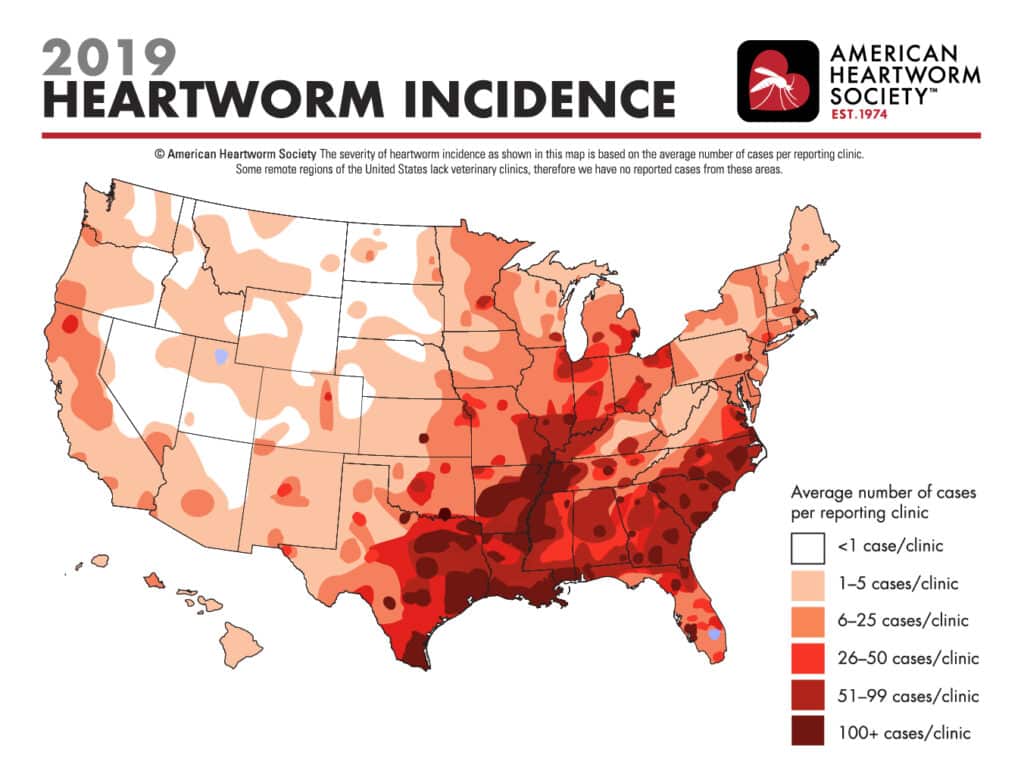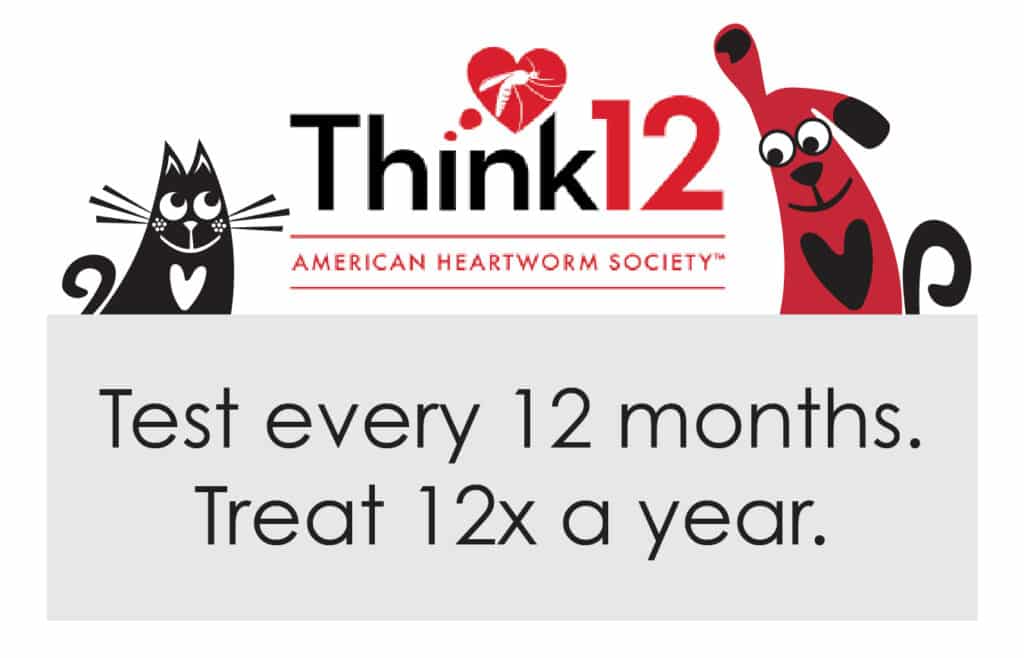Did you know more than one million pets in the U.S. have heartworm disease? To shed some light on this serious, potentially fatal disease, we have put together some basic data to keep you informed.
Let’s take a look at who transmits it and is at most risk, what symptoms to look for, where the disease is most prevalent, when to take action, why it’s vital to consult your veterinarian, and how to best keep your four-legged furchild safe and healthy!
More on Parasite Prevention: Lyme Disease – Protecting Pets in the Midwest

Heartworms – foot-long worms that live in the heart, lungs, and associated blood vessels of affected pets – are the cause of heartworm disease. We most commonly find the disease in dogs, cats, and ferrets, but it also affects other mammals such as wolves, foxes, sea lions, and (very rarely) humans. While wild species like the fox and wolf are considered significant carriers since they can live close to urban areas, the more vital component of the transmission of the disease is the mosquito.
Here’s a closer look at the life cycle of heart worm disease.

Dogs may not show many or any symptoms in the early stages of heartworm disease. As the infection persists or the number of infected worms increases, they often show signs such as:
- Persistent cough
- Resistance to exercise
- Fatigue
- Loss of appetite
- Weight loss
- Swollen belly
- Heavy breathing
- Pale gums
- Discolored urine

Cats, on the other hand, are atypical hosts for heartworms and most worms do not survive to adult stages. This means many cats go undiagnosed, either showing very subtle symptoms or displaying severe signs abruptly, including sudden collapse or death. Furthermore, medication used in dogs to treat infections cannot be used in cats, so prevention is the only means we have to deter feline cases of the disease.
Symptoms to watch for in cats include:
- Coughing
- Asthma-like attacks
- Vomiting
- Loss of appetite
- Weight loss
- Difficulty walking
- Fainting
- Seizures
- Fluid in abdomen


All 50 states have reported heartworm diagnoses. While some areas may be less of a problem than others, the numerous risk factors to consider make taking preventative measures for the health of your pet very important. Everything from infected mosquitoes being blown long distances to the relocation of infected pets across the U.S. can contribute to the spread of this harmful disease.
This 2019 map below shows the average number of cases per reporting clinic across the United States; however, it’s important to note that not all rural areas have reporting clinics present and therefore may have more cases than are shown.


Because this is a serious, progressive disease, it is vital to consult with your veterinarian on how to properly protect your pet from infection and your surrounding community from increased risk. The American Heartworm Society recommends “Think 12” – test your pet for heartworm disease every 12 months, and treat your pet with preventative medication prescribed by your veterinarian 12 times a year.


Why are prevention and testing necessary? Prevention is the best defense for protecting your pet from this dangerous disease, and if your furry family member is a feline, prevention is the only means available to keep them from becoming infected.
Annual testing is important to ensure the prevention program you and your veterinarian have put into place is working, and while the preventative medication is highly effective, it is not 100% effective. Missing even one dose (or giving one late), vomiting of their heartworm pill, or rubbing off the topical medication can leave your furry friend unprotected and at risk.

The best offense is a good defense – work closely with your veterinarian to put a prevention program in place that will help you protect your pets from heartworm disease. Not only will your vet have the knowledge and experience to provide you and your pet with the best information and resources available, but preventative medication must be purchased from your veterinarian or with a prescription through a pet pharmacy per the U.S. Food and Drug Administration (FDA).
Is your pet well-protected? For more information on preventative best practices and answers to your medication questions, or to schedule your four-legged family member’s annual heartworm test – call us at Grand Valley Animal Hospital at 701.757.3500.




